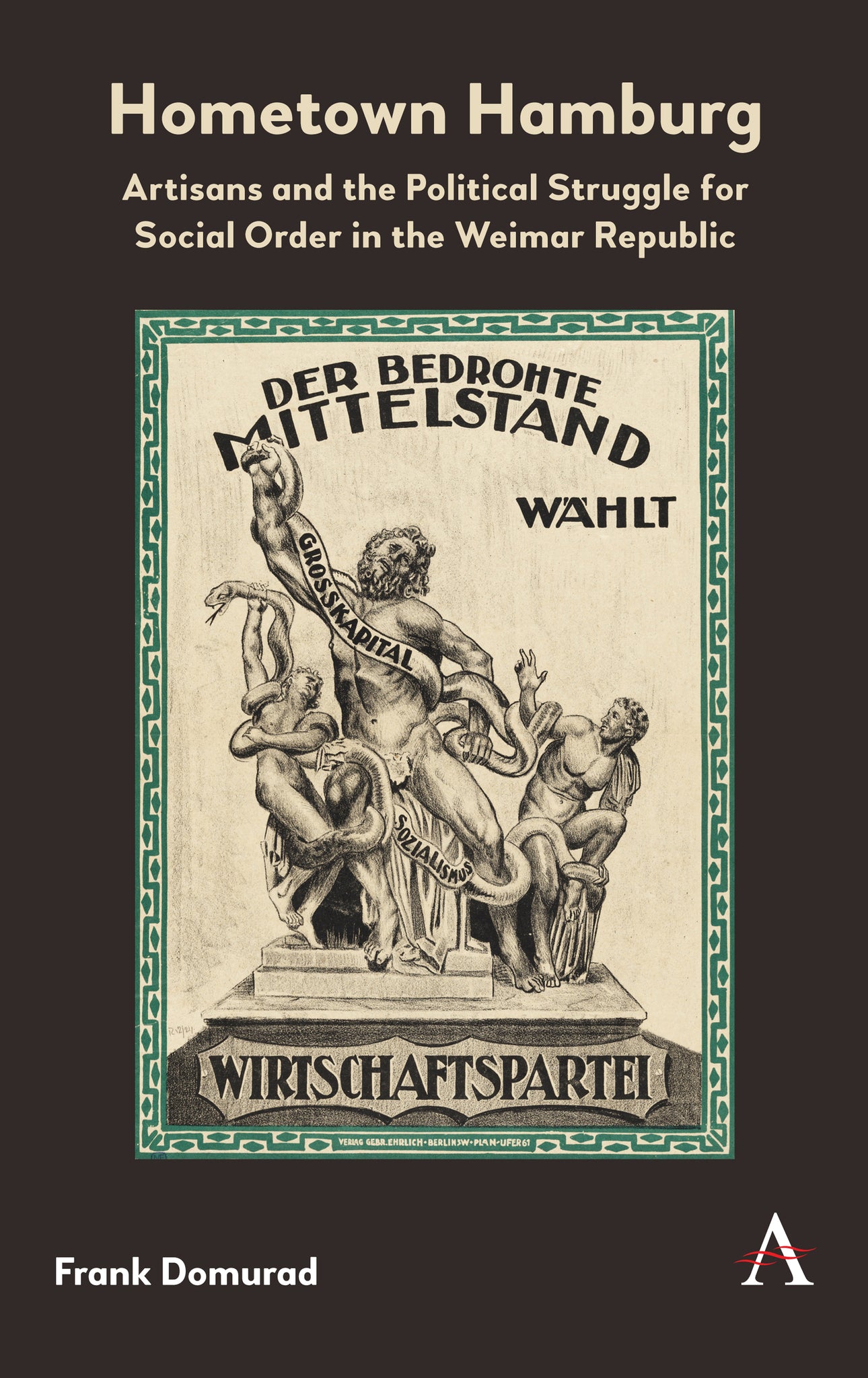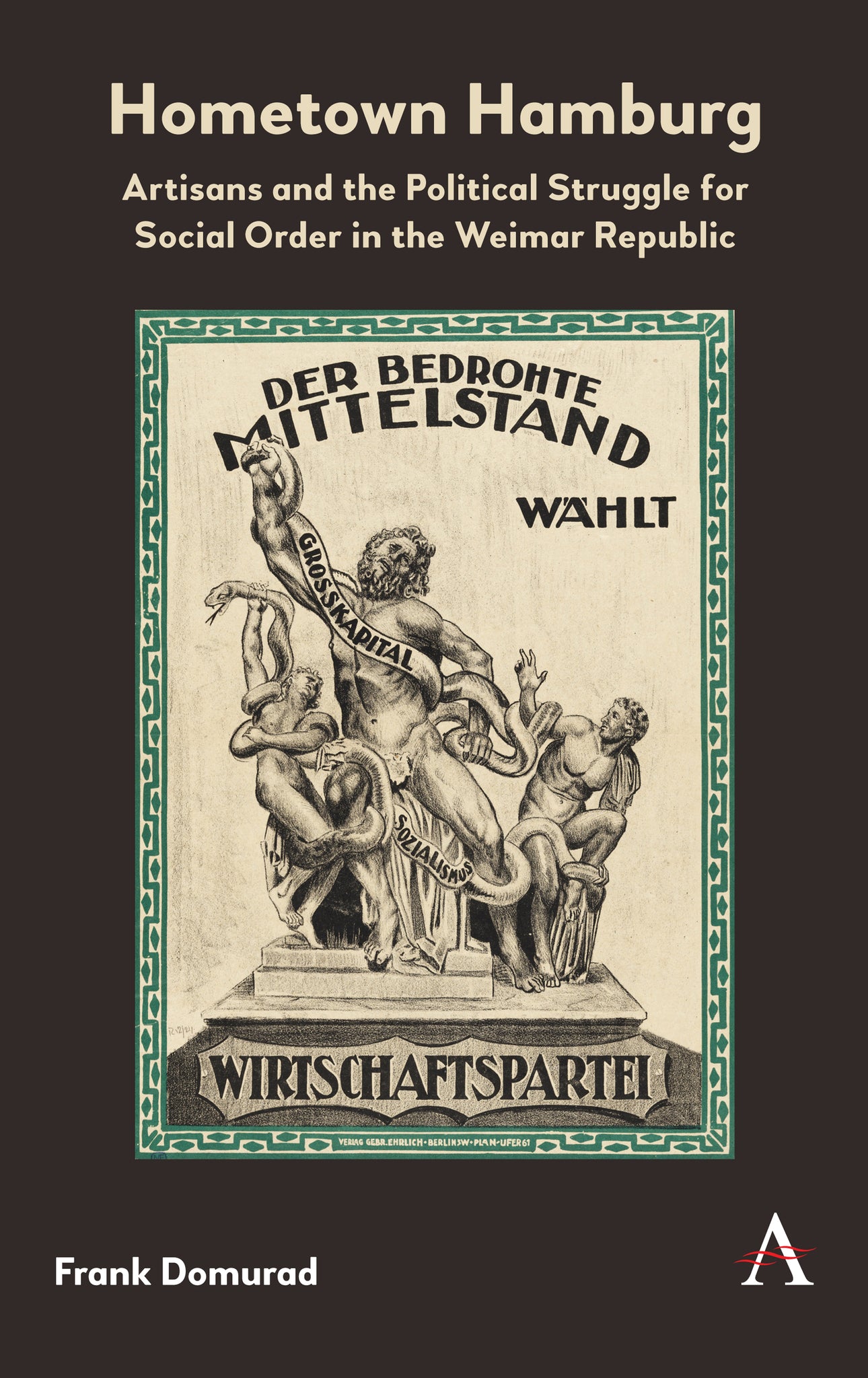We're sorry. An error has occurred
Please cancel or retry.
Hometown Hamburg

Some error occured while loading the Quick View. Please close the Quick View and try reloading the page.
Couldn't load pickup availability
- Format:
-
22 March 2019

Through the study of Hamburg handicraft in the late Weimar Republic "Hometown Hamburg" addresses three intertwined problems in modern German history: the role of institutionalized social, political and cultural continuity versus contingency in the course of modern German development; the impact of conflicting notions of social order on the survival of liberal democracy; and the role of corporate politics in the rise of National Socialism. It provides a theoretical and analytical framework for reintroducing the notion of historical continuity in the study of modern German history. The book also supports the recent challenges to the notion of Hamburg as a liberal economic and political bastion, a “London on the Elbe,” in a nation of conservative and authoritarian governmental regimes. Hometown Hamburg demonstrates why “liberal” and “socialist” Hamburg also remained a hotbed of corporate radicalism and underscores the fact that National Socialism was the only political party that presented a coherent vision of a corporate “good society,” thereby making it attractive to hometown voters across the entire social spectrum in Hamburg (and in Germany).

HISTORY / Europe / Germany, POLITICAL SCIENCE / History & Theory, SOCIAL SCIENCE / Sociology / Social Theory

Frank Domurad’s book casts new light on a much commented upon, but little understood phenomenon: the support offered to Nazism by self-employed artisans. Conventional analysis portrays this as a panicked reaction by the lower middle classes to the onset of the Great Depression, underpinned by the long term issues of competition from industry and the rise of organised labour. Domurad, however, employs a detailed analysis of the social and political lives of Hamburg artisans to demonstrate that they thought of themselves as members of a flourishing institutionalised corporate estate. The flexibility of their conception of Handwerk enabled them to preserve their position even within the rapidly modernising and politically liberal city. Their support for Nazism, he argues, is best understood as a political tactic for obtaining the corporate self-governance promised, but never delivered, under the Weimar constitution, rather than an expression of existential crisis. This is an important book whose sense of, and sensibility to, the mental and material world of the Hamburg artisans allows readers to understand how such a calculation came to be made. —Professor Jonathan Morris, Vice President and Chair of Research Policy Committee, Royal Historical Society, Research Professor in Modern European History, Director, Heritage for Business, School of Humanities, University of Hertfordshire
Introduction: Continuity in History; 1. The Peculiarity of German History: Handwerk versus Handicraft; 2. Hamburg: A German Home Town?; 3. In Search of Hamburg Handwerk: Figures and Forms; 4. The Handicraft Occupational Estate in the Crisis of the Weimar Republic; 5. A Constitution without Decision; 6. From the Politics of Barter to a Volksgemeinschaft; Conclusion: Continuity in History Revisited; Bibliography; Index.



